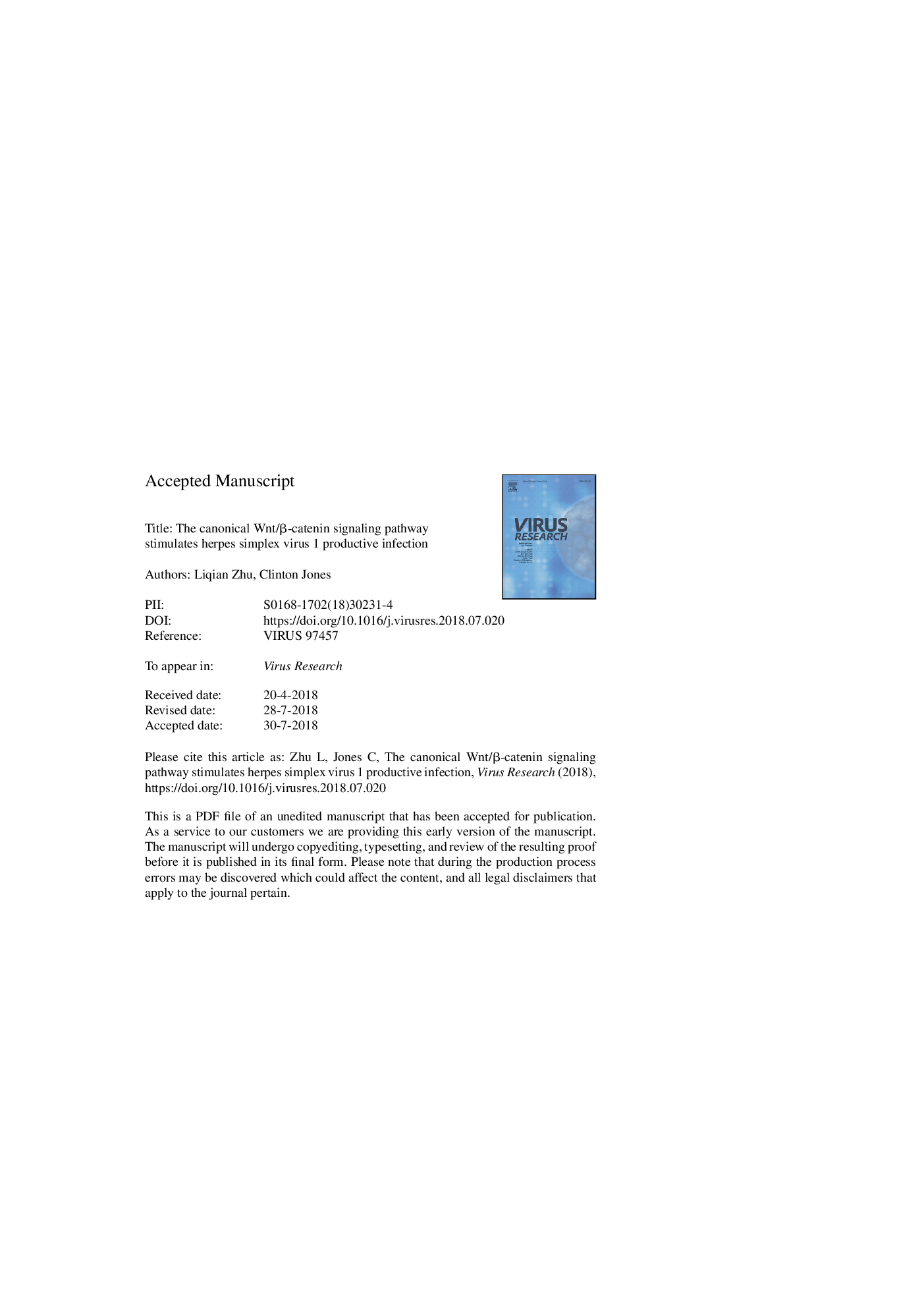| Article ID | Journal | Published Year | Pages | File Type |
|---|---|---|---|---|
| 8751629 | Virus Research | 2018 | 32 Pages |
Abstract
The ability of herpes simplex virus 1 (HSV-1) to replicate efficiently in differentiated cells is regulated by cellular factors that stimulate viral gene expression, cell survival, and viral morphogenesis. Activation of the canonical Wnt signaling pathway generally increases β-catenin protein levels, cell survival, and growth in dividing cells suggesting this important signaling pathway regulates productive infection. In this study, we demonstrated that a β-catenin specific small molecule inhibitor (iCRT14) reduced HSV-1 titers approximately 10-fold in primary human lung fibroblasts and Vero cells. Furthermore, β-catenin dependent transcription was increased at late times after infection and as expected iCRT14 reduced β-catenin dependent transcription. Although HSV-1 infection increased β-catenin steady state protein levels approximately 4-fold in Vero cells, there was only a nominal increase in human lung fibroblasts. We hypothesized that VP16 regulates β-catenin dependent transcription because VP16 is a viral regulatory protein expressed at late times after infection. In the absence of other viral proteins, VP16 increased β-catenin dependent transcription and β-catenin steady state protein levels. Collectively, these studies suggested the cellular transcription factor β-catenin stimulates productive infection, in part because VP16 enhances β-catenin dependent transcription.
Keywords
Related Topics
Life Sciences
Immunology and Microbiology
Virology
Authors
Liqian Zhu, Clinton Jones,
